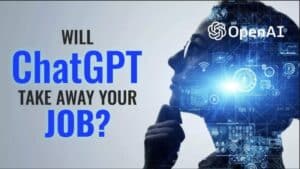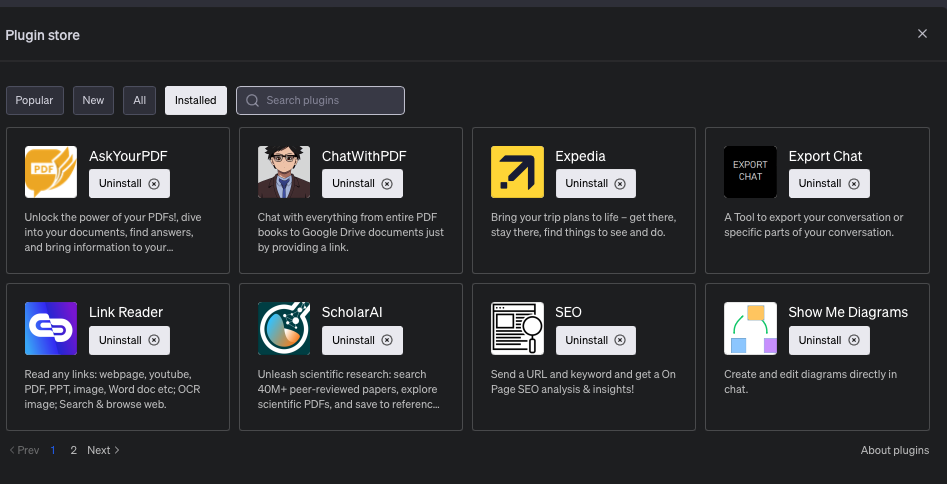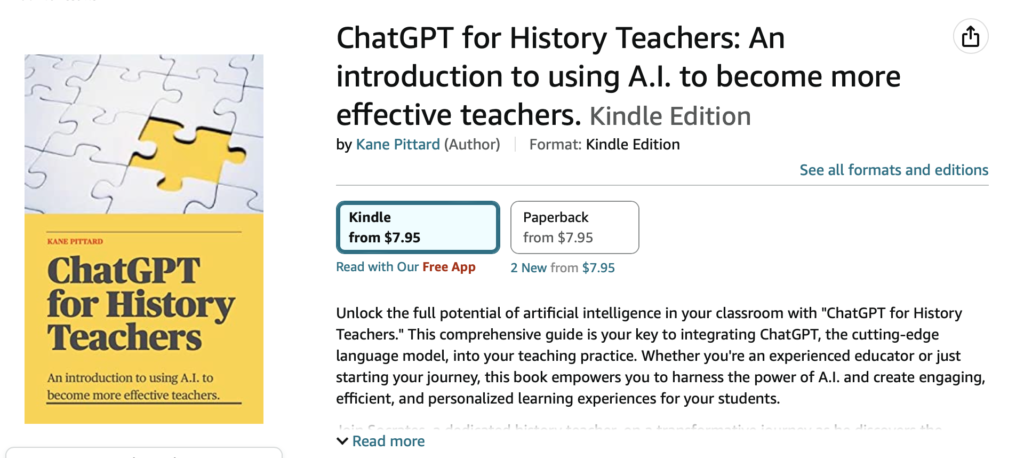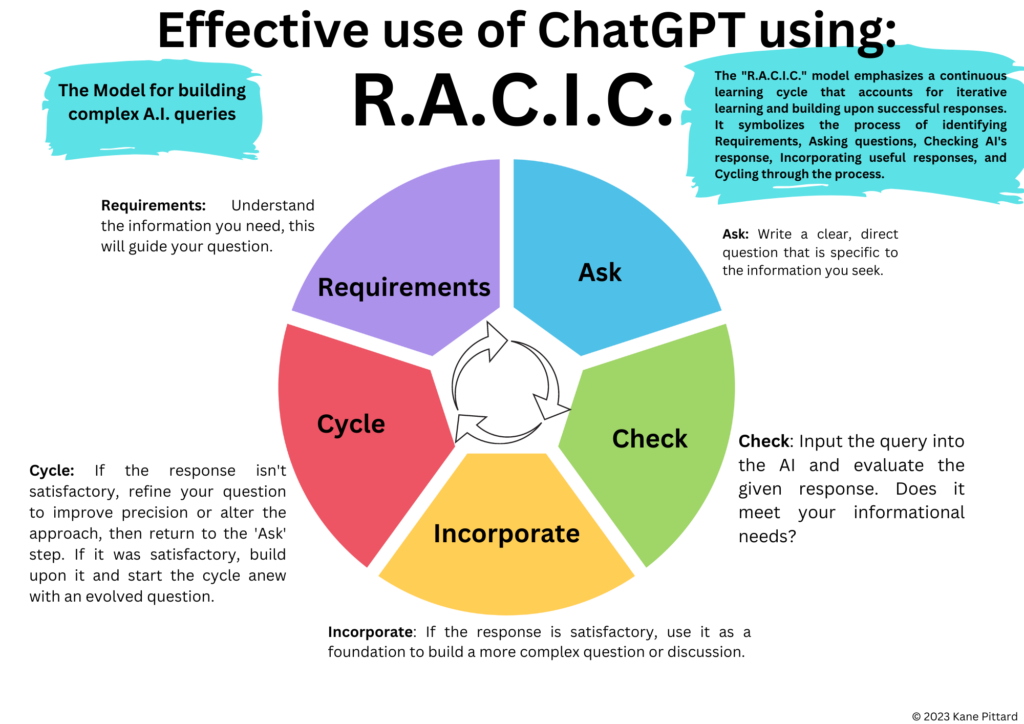The advent of AI technologies like ChatGPT, as discussed in the article “ChatGPT may be coming for our jobs. Here are the 10 roles that AI is most likely to replace,” has raised concerns about the potential impact of AI on various job roles. In this blog post, we explore the 10 roles that are most susceptible to AI-driven change and discuss how white-collar professionals need to adapt in the next decade to integrate AI into their workflows. By embracing this change and leveraging AI, professionals can stay ahead of the curve and continue to excel in their careers.
As the ongoing debate about the potential impact of artificial intelligence (AI) on the job market continues, it is essential to consider the opportunities AI can create alongside the risks it poses for displacing jobs. The article highlights the 10 job roles that are most susceptible to being impacted or replaced by AI, such as ChatGPT. However, rather than focusing solely on the potential risks, it is crucial to explore how these job roles may evolve with the integration of AI technologies, thereby creating new opportunities for growth and innovation.
Some quick highlights from the SortList study on ChatGPT and work:
- 43% of employers want to hire ChatGPT as a copywriter.
- 26% of employers plan to cut jobs in software and tech.
- 51% of employers are looking at ways to automate marketing through ChatGPT, however, only 16% of employees in those departments fear layoffs.
- As for those working in education in the corporate sector, employees are twice as likely to fear job cuts than what employers predict will happen.
- Not surprisingly, Millennials in both tech and finance are 2.4x more likely to worry about ChatGPT taking their job.

As AI becomes increasingly sophisticated, certain job roles are more likely to be impacted or replaced by advanced tools like ChatGPT. The 10 roles that may be most affected are:
- Tech Jobs: Coders, computer programmers, software engineers, and data analysts may see their roles disrupted by AI, which can quickly crunch numbers and produce code.
- Media Jobs: Roles involving content creation, such as advertising, technical writing, and journalism, may be impacted as AI can effectively read, write, and understand text-based data.
- Legal Industry Jobs: Paralegals and legal assistants may be affected, as their language-oriented roles make them susceptible to automation.
- Market Research Analysts: AI’s ability to analyse data and predict outcomes may render market research analysts more susceptible to job disruptions.
- Teachers: While AI has limitations in fully replacing teachers, it can be used as an enhancer for lesson planning and other educational tasks.
- Finance Jobs: Financial analysts and personal financial advisors may be impacted due to AI’s ability to analyse data and forecast trends.
- Traders: Wall Street roles, such as trading and investment banking, may be disrupted by AI’s ability to automate tasks and focus on higher-value responsibilities.
- Graphic Designers: AI tools like DALL-E can generate images in seconds, potentially impacting the graphic design industry.
- Accountants: Even stable professions like accounting could be at risk due to AI’s potential to perform intellectual labor tasks.
- Customer Service Agents: Chatbots and AI technologies could replace many customer support roles in the coming years.
In the next decade, white-collar professionals will need to adapt and integrate AI into their workflows to stay competitive. Embracing change and leveraging AI can help professionals excel in their careers and navigate the evolving job landscape.
Understanding how these roles are impacted is essential for professionals to make informed decisions about their career paths. By adapting to AI-driven changes, white-collar workers can ensure their relevance in the workforce and capitalise on new opportunities created by AI integration. In conclusion, the key to success in the era of AI lies in professionals’ ability to adapt, embrace change, and leverage AI tools to enhance their skills and remain competitive.

It is essential to note that AI is not just a threat to jobs; it is also a catalyst for job creation and evolution. As history has shown us with the advent of the Internet and other technological advancements, new technologies often lead to the emergence of new job roles and industries. The integration of AI into various sectors is likely to follow a similar trend, with AI complementing and enhancing human capabilities, rather than solely replacing them.
Here is a critical analysis of how each of the 10 job roles identified in the article may evolve with the use of AI:
- Tech Jobs: While AI may automate specific coding and programming tasks, it will also give rise to new job roles in AI development, maintenance, and implementation. As AI continues to advance, there will be a growing need for professionals who can understand and work with AI systems, ensuring that they are integrated effectively and ethically into various sectors.
- Media Jobs: The increasing use of AI in content creation could free up journalists and writers to focus on more in-depth investigative reporting, analysis, and creative storytelling. AI-generated content can serve as a basis for human writers to build upon, enhancing their productivity and efficiency. Additionally, the rise of AI-generated content could lead to new job roles in AI content management and curation.
- Legal Industry Jobs: While AI may automate some tasks of paralegals and legal assistants, it could also lead to a more efficient and streamlined legal process. Lawyers could leverage AI-generated drafts and analyses to develop more comprehensive and well-researched legal briefs, allowing them to focus on strategic decision-making and client relationships. New job opportunities may arise in AI-driven legal analytics and AI ethics within the legal profession.
- Market Research Analysts: As AI becomes more effective at analysing data and predicting trends, market research analysts could shift their focus towards strategic planning and implementing AI-driven insights. This shift would allow analysts to concentrate on developing creative and innovative marketing campaigns, leading to new roles in AI-driven marketing strategy and planning.
- Teachers: Although AI can assist in lesson planning and grading, it cannot replace the essential human interaction and empathy that teachers provide. Teachers can use AI to enhance their teaching methods and provide personalised learning experiences for their students, leading to new roles in AI-driven education technology and personalised learning.
- Finance Jobs: Financial analysts and personal financial advisors can leverage AI to enhance their decision-making capabilities and provide more accurate financial advice. AI-driven insights can help them identify new investment opportunities and optimise financial planning for their clients. New job roles may emerge in AI-driven financial analysis and AI-based risk management.
- Traders: AI may automate some trading tasks, but it could also lead to new roles in AI-driven trading strategies and AI risk assessment. Human traders can focus on developing innovative investment strategies and leveraging AI-generated insights to make better-informed decisions in the fast-paced world of trading.
- Graphic Designers: AI tools like DALL-E can indeed generate images quickly, but they lack the creativity and human touch that graphic designers bring to their work. Designers can use AI-generated images as a starting point, enhancing their creativity and productivity. New job opportunities may arise in AI-driven design innovation and AI-based design consulting.
- Accountants: Although AI may automate routine accounting tasks, such as data entry and basic calculations, it could also serve as a valuable tool for accountants to offer more strategic financial advice. Accountants can leverage AI-generated insights to identify tax-saving opportunities, develop more efficient financial systems, and offer better-informed financial forecasts. New job roles may emerge in AI-driven financial strategy and AI-based financial optimisation.
- Human Resources (HR) Professionals: AI can streamline specific HR tasks, such as resume screening and interview scheduling, but it cannot replace the human touch and empathy that HR professionals bring to the recruitment process. HR professionals can use AI to enhance their ability to identify the best candidates and ensure a more inclusive and unbiased recruitment process. New job roles may emerge in AI-driven talent management, AI-based workforce planning, and AI ethics in HR.
While AI has the potential to impact numerous job roles, it is crucial to recognise that it is also a driving force for job evolution and creation. AI is likely to transform existing jobs and give rise to new roles that will capitalise on AI-driven insights and capabilities. As a result, it is essential to focus on developing the necessary skills and knowledge to adapt to these changes and thrive in an AI-integrated workforce.
Rather than viewing AI as a threat, it is more constructive to consider it as an opportunity for job transformation and growth. By embracing AI’s potential and integrating it effectively, we can ensure that the workforce evolves in tandem with technological advancements. This evolution will not only create new jobs but also enhance the quality and effectiveness of existing roles, ultimately benefiting individuals, organisations, and society as a whole.



